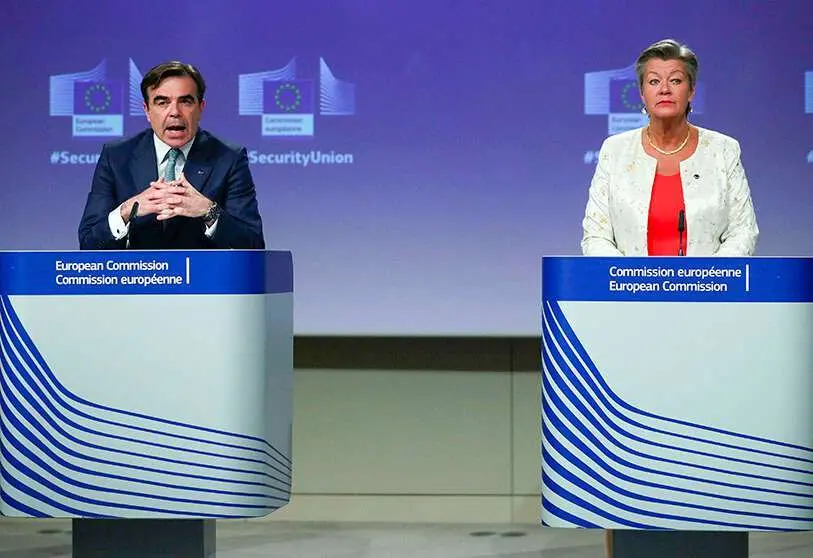The EU stands up to organised crime

The European Union puts the annual income from organised crime at 139 billion euros. It is equivalent to 1% of the EU's GDP, which is already considerable, but its social impact is so brutal that there is rarely a European citizen who has not been a victim, either completed or attempted, of fraud by these criminal groups. It is one of the biggest threats facing the EU, according to the new strategy against organised crime, presented in Brussels by EU Commissioners Margaritis Schinas and Ylva Johansson.
Schinas, Vice-President of the European Commission for the Promotion of our European Way of Life, said: "Criminal groups are increasingly using new technologies, taking every opportunity to expand their illegal activities, both online and offline. There is a need for a strategy that focuses on hitting these criminals where it hurts most, attacking their business model, which thrives on the lack of coordination between states."
The lack of coordination facilitates the rapid development and evolution of this crime, which has proved, for example, adaptable to the coronavirus pandemic. The supply of counterfeit medical products has soared, but there has also been a sharp increase in drug trafficking, organised property crime, fraud, migrant smuggling and human trafficking.
On the same front, Home Affairs Commissioner Ylva Johansson believes that it is crucial in this fight that the police and the judiciary definitely adapt to the digital age. "They have to fight against highly professional criminals who operate internationally. Seventy per cent of criminal organisations operate in more than three Member States. Their capacity is demonstrated by the attempts to sell more than 1 billion doses of fake vaccines".
The European Commission will therefore propose an EU Code of Police Co-operation to replace the current patchwork of various multilateral instruments and agreements. The aim is to computerise all information systems for interoperable security, border and migration management by 2023. It is a well-documented fact that criminals communicate and commit crimes online, leaving digital traces on the internet. And since 80% of crimes have a digital dimension, police and justice need rapid access to digital evidence and leads, as well as the use of modern technologies to counter the current ways in which crime operates.
But, at the heart of this fight will be to ensure that crime does not pay. As of today, more than 60% of criminal networks active in the EU are involved in corruption, and more than 80% use legitimate companies for their activities, while only 1% of criminal assets are confiscated. The fight against criminal financing is therefore essential to punish and prevent this cancer.
The exploitation of people, especially women and children, for sexual purposes is one of the big businesses of organised crime. Despite the fight at national level in the EU Member States, the Commission has identified more than 14,000 victims of slavery in the EU, from which criminal gangs make an annual profit of 29.4 billion.
The fight against the scourge of human trafficking is vital, according to Schinas and Johansson, to build a Europe that protects its citizens, especially the weakest, on whom exploiters prey. In the new strategy the EU adopts a three-pronged approach, based on the simultaneous use of legislation, political and operational support and funding. The aim is also threefold: to reduce the demand that fuels trafficking, to tackle criminal activities by disrupting the business model of traffickers, and to protect and support victims.
As half of the victims detected in the EU are third country nationals, cooperation with international partners is key to tackling trafficking in human beings. Without the cooperation of the victims' countries of origin and transit, the business of international gangs in exploiting people will remain as buoyant as it has been so far.

